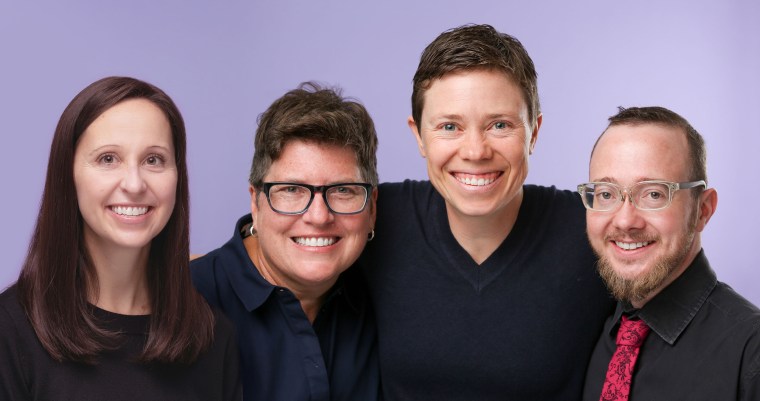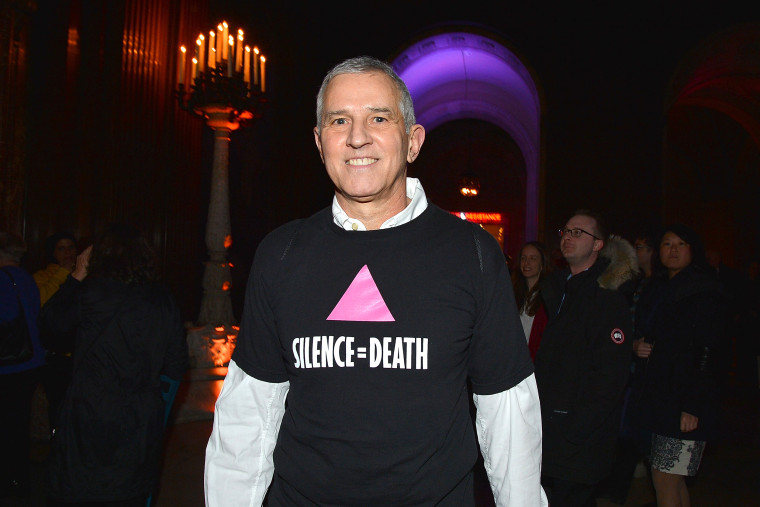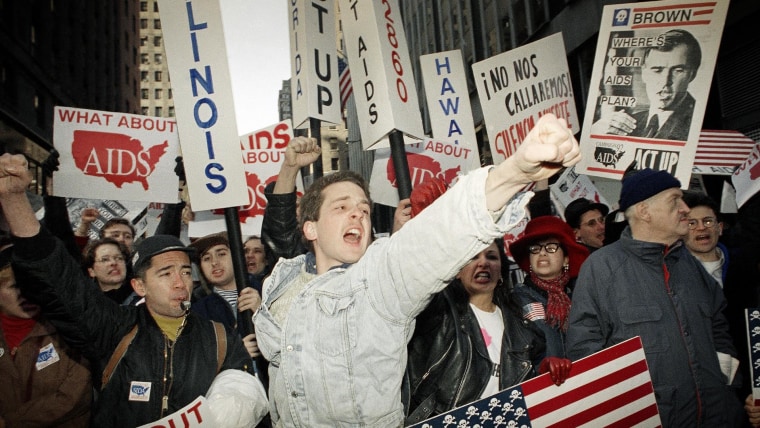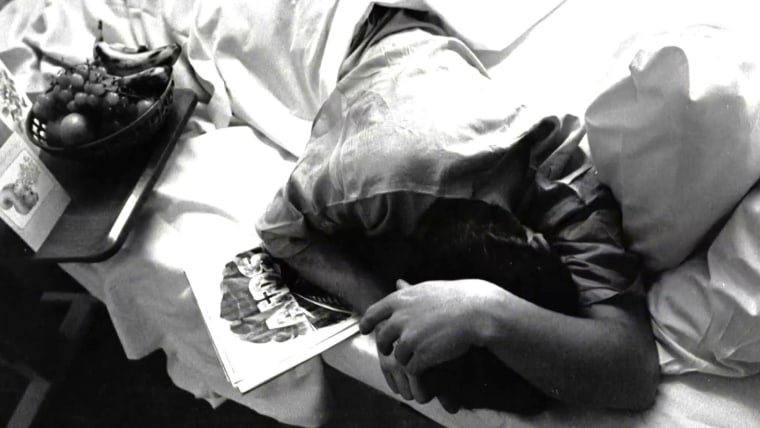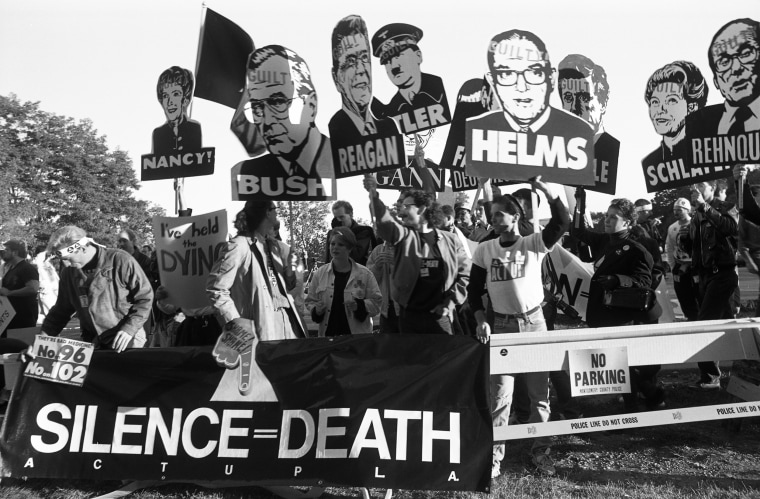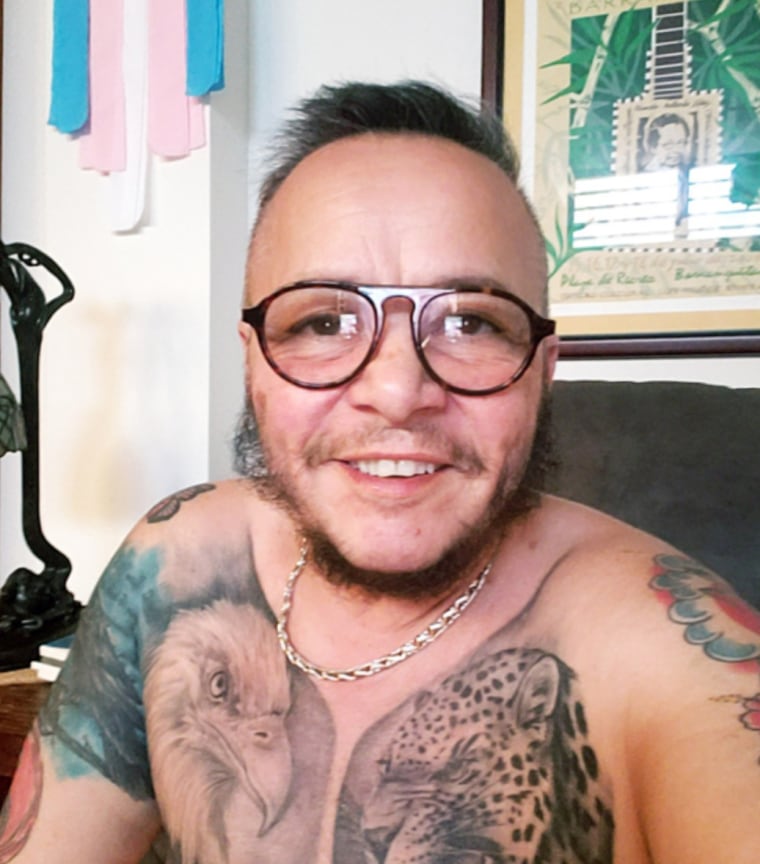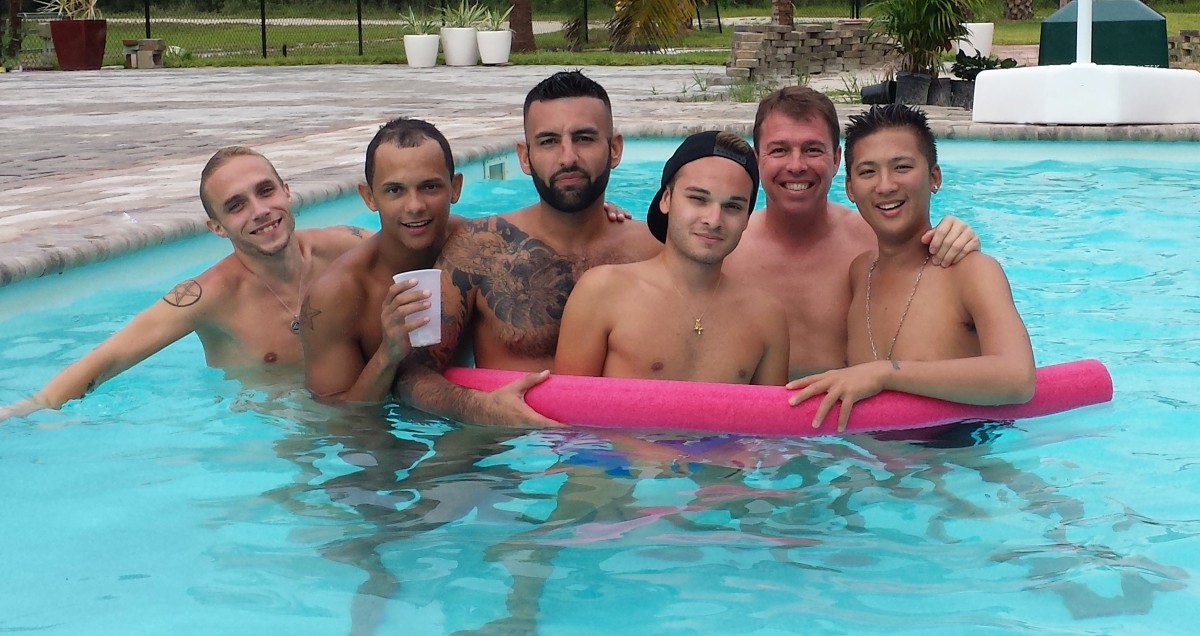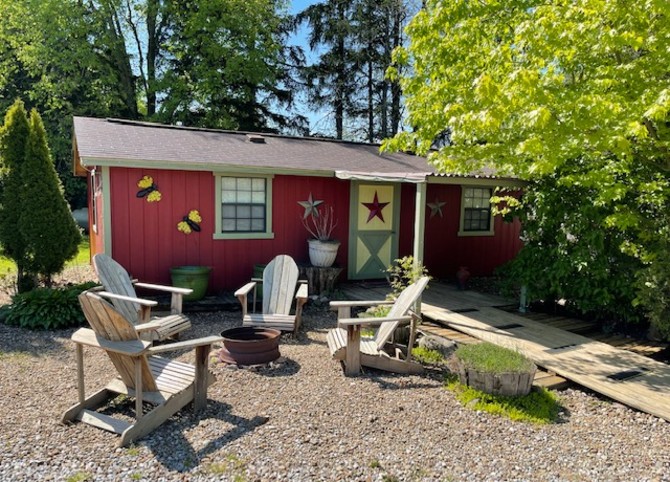15 brands that are giving back for Pride Month 2021
After a year when Pride celebrations had to go virtual, members of the LGBTQ community and their allies are eager to shine bright in 2021. And as in years past, numerous brands have launched special Pride products and capsule collections that celebrate love, diversity and inclusion. However, advocates say that authentic support means more than just a rainbow stripe on a T-shirt.
“Brands need to approach Pride not as a marketing moment to sell products and profit from LGBTQ people, but [as] a time to loudly use their reach and influence to affirm our community and support advocacy organizations in authentic and impactful ways,” said Sarah Kate Ellis, CEO of the media watchdog group GLAAD.
Related
Queer and trans poets worth reading
Companies that truly walk the walk donate to and uplift LGBTQ organizations, added Alphonso David, president of the Human Rights Campaign, the country’s largest LGBTQ advocacy group. “These businesses provide an invaluable platform to further the fight for LGBTQ equity and inclusivity,” he said.
Some organizations are contributing a portion of proceeds from Pride products to groups like GLAAD and HRC, while others are making direct donations so LGBTQ organizations can continue their vital missions. “We are thrilled to see so many companies and brands stepping up to support Pride this year,” said Shira Kogan, director of corporate development at the Trevor Project, an LGBTQ youth suicide prevention and crisis intervention organization. “Beyond the essential financial support, there’s also a direct benefit for the community when brands are loud about their support of Pride,” she added. “More than half of youth said brands who support the LGBTQ community positively impact how they feel about being LGBTQ.”
Below, we’ve gathered some of our favorite offerings for Pride 2021, including clothing, toys, personal care products and more.
Related
Comedian Punkie Johnson on making ‘SNL’ history
Brands that are giving back to the LGBTQ community during Pride Month
LEGO’s Everyone is Awesome set
On June 1, LEGO launched its first LGBTQ-themed set, which comes with 11 monochromatic figures, each with an assigned color, and 346 pieces creating a rainbow cascade.
“I wanted to create a model that symbolises inclusivity and celebrates everyone, no matter how they identify or who they love,” said Matthew Ashton, Lego’s vice president for design who developed the limited-edition set.
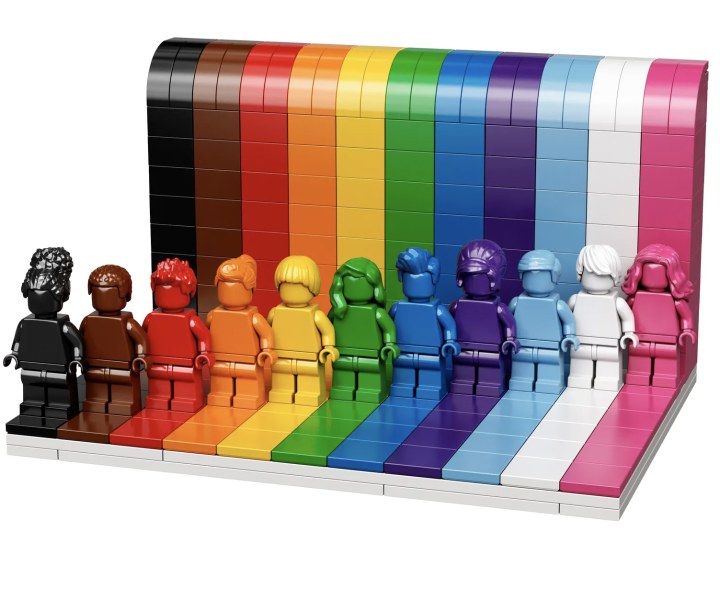
LEGO Everyone is Awesome Set$34.99LEGO
Old Navy’s Project WE Pride Tee by Edward Granger
In January, Old Navy announced “Project WE,” a collection of T-shirts created in collaboration with diverse artists to honor International Women’s Day, Juneteenth, LatinX Heritage Month and other cultural touchstones.
For Pride, the company has tapped queer artist Edward Granger, who designed a unisex rib-knit black crew with the world “Love” colored in a variety of hues. An alternate “Pride” version in white presents an abstract rainbow of geometric shapes.
“This is our love letter to the LGBTQIA+ community,” Granger said. “Love yourself, stay connected to who you are, and never give up.”In celebration of the Project We initiative, Old Navy is donating $1 million to Boys & Girls Clubs of America to support youth arts programs in communities across the United States.
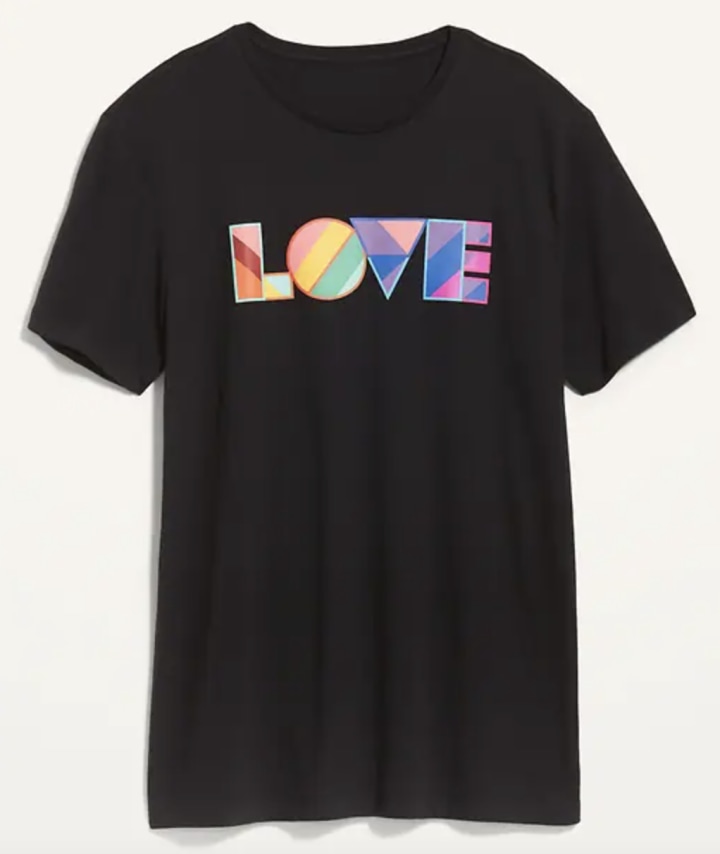
Old Navy Project WE Pride Tee by Edward Granger$12.00$14.99OLD NAVY
Skittles Pride Packs
For the second Pride season running, Skittles has given up the rainbow in a tip of its hat to the LGBTQ community. Limited-edition Skittles Pride Packs feature gray packaging on the outside and all gray candies inside. (They’re still jammed with delicious strawberry, orange, grape, apple and lemon flavors, but good luck telling which is which.) During the month of June, $1 from each pack will be donated to GLAAD, up to $100,000.
Sarah Long, chief marketing officer for Mars Wrigley North America, said the returning campaign symbolizes the candymaker’s commitment “to shape a world that is connected, caring and celebratory.”
“Skittles giving up their rainbow means so much more than just removing the colors from our Skittles packs, and we’re excited to use our platform to do our part in driving visibility for the LGBTQ+ community, creating better moments and more smiles,” Long said.
Limited-edition packs are available for purchase in 4-ounce Share Size Packs and 15.6-ounce resealable Sharing Size Stand Up Pouches at Walmart, Target and other retailers.
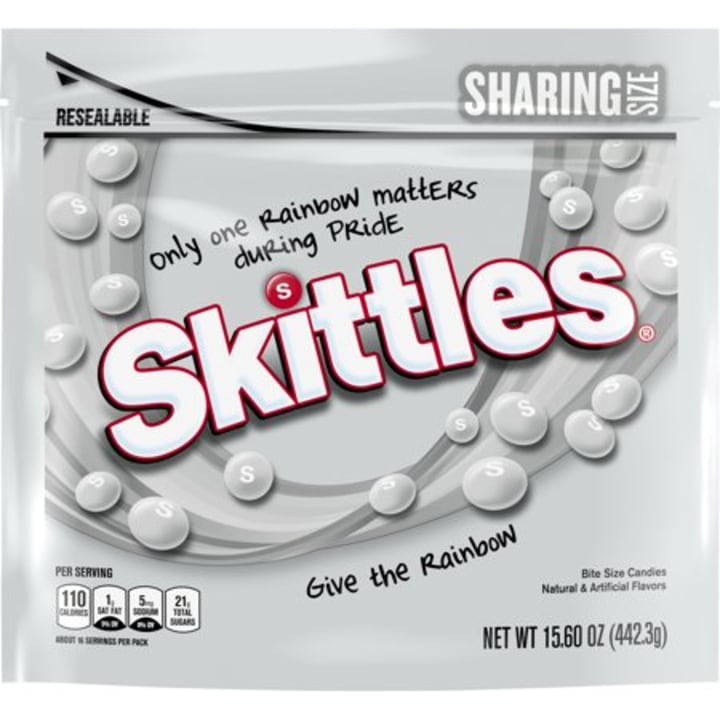
Skittles Pride Packs$3.18WALMART$3.49TARGET$8.00EBAY
Related
Pride 2020: Must-read LGBTQ history books
Disney’s Mickey Mouse Ear Hat
The Rainbow Disney 2021 collection includes dozens of tees, polos, mugs, backpacks, hats, face masks and more, available online and in select Disney stores and theme parks.
In celebration of Pride Month 2021 The Walt Disney Company is donating to LGBTQ organizations around the world, including ARELAS in Spain, Famiglie Arcobaleno in Italy, Nijiiro Diversity in Japan and, here in the U.S., GLSEN, which works to ensure all students learn and thrive in a safe and supportive environment.
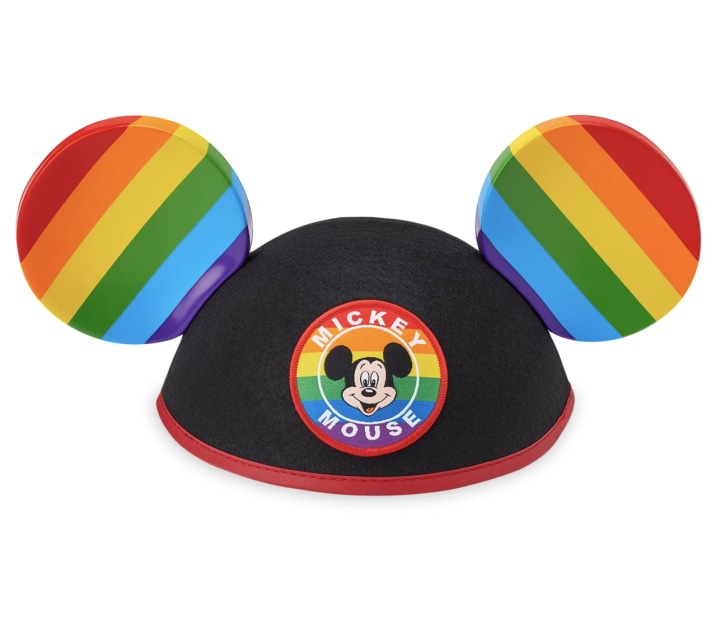
Disney Rainbow Collection Mickey Mouse Ear Hat$19.99DISNEY$26.99EBAY
Ugg’s Pride Rainbow Disco Stripe Slide
Ugg and the Pacific Pride Foundation are back with their “Proud Prom” campaign, featuring bold rainbow takes on the Fluff You Slide Cali Collage and other Cali Collage styles, including the Slide and Highland high-top sneaker.
“We chose to showcase real, bold and wonderful individuals celebrating a virtual prom in a safe and welcoming environment” said Ugg president Andrea O’Donnell in a statement. “We wanted to express that there is beauty in what makes you different and that you should never feel the need to apologize for who you are or who you love.”
The Disco Stripe Slide comes in the colors of the Pride rainbow or in the pink, blue and white of the transgender flag. It’s comfortable and stylish — and $25 from each pair purchased on UGG.com goes to GLAAD, up to $125,000.
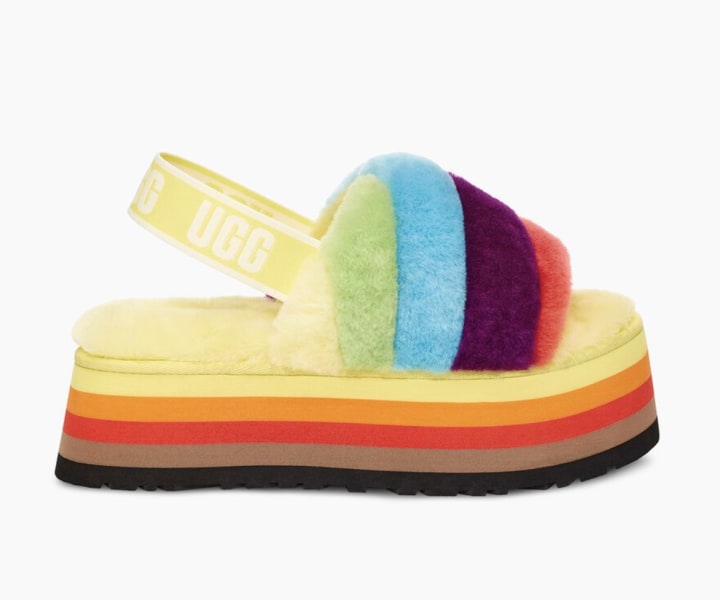
Ugg Disco Stripe Slide$110.00UGG
Mattel’s UNO Play with Pride edition
The classic card game gets a Pride makeover with special rainbow-colored cards available exclusively at Target.com and Target stores nationwide. Mattel will donate $50,000 to the It Gets Better Project.

Mattel UNO Play with Pride edition$5.99TARGET$5.99NORDSTROM RACK$5.99AMAZON
Petsmart’s Pride Pink “Pride” Pet Dress
PetSmart’s You Are Loved collection includes rainbow-tinted plush toys, pet clothing, collars, bandanas and more. A fun item from the collection is the Pink Pride Pet Dress — it slips on and off in a snap, and comes with a message of pride and an adorable tutu. This year, PetSmart is donating $100,000 to GLSEN.
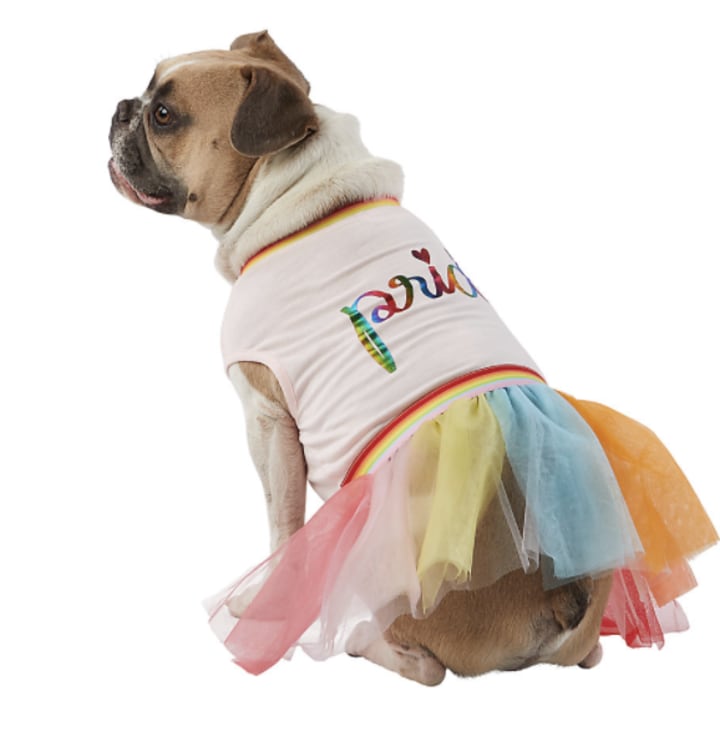
Petsmart Pride Pink “Pride” Pet Dress$9.99PETSMART
Dr. Martens’ 1461 for Pride Smooth Leather Oxford Shoes
The old-school cool shoe brand is keeping it simple for Pride 2021, giving its classic 1461 oxford a rainbow flag on the heel tab and a rainbow Airwair heel-loop. You can upgrade your look even further with rainbow laces and Dr. Martens athletic socks with rainbow stripes, available in black or white.
“At Dr. Martens, we know our many diverse wearers have got us to where we are today,” the company said in a statement. “That’s why we celebrate individuality and diversity in all forms.” As in years past, Dr. Martens is donating $100,000 to The Trevor Project.
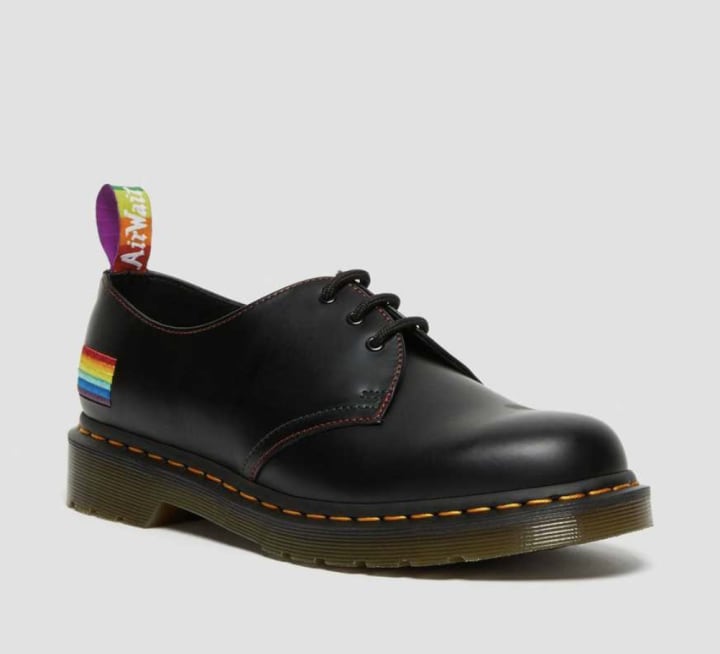
Dr. Martens 1461 for Pride Smooth Leather Oxford Shoes$120.00DR. MARTENS$119.95ZAPPOS$119.95AMAZON
Balenciaga’s ‘GAY’ Pride hoodie
The couture house got a little risque with its Pride capsule range this year, including baseball caps, sports bras, shirts, bracelets, fake-fur coin purses and a jockstrap with a rainbow waistband. The collection includes an oversize pink hooded sweat jacket emblazoned with the word “Gay,” stylized like a GAP logo.
Like the rest of the Pride collection, the sweat jacket was designed by Balenciaga creative director Demna Gvasalia, who was raised in the republic of Georgia where LGBTQ people are often the targets of bigotry and violence.
“I’m gay. I grew up in a society where I couldn’t have worn that, and there are places in the world that you cannot today,” Gvasalia told Vogue back when the collection was previewed. “It’s important to push through against homophobia. I’m not someone who goes out in the street and shouts. But this is the political fashion activism I can do.”
Balenciaga is donating 15 percent of sales from Pride items to The Trevor Project.
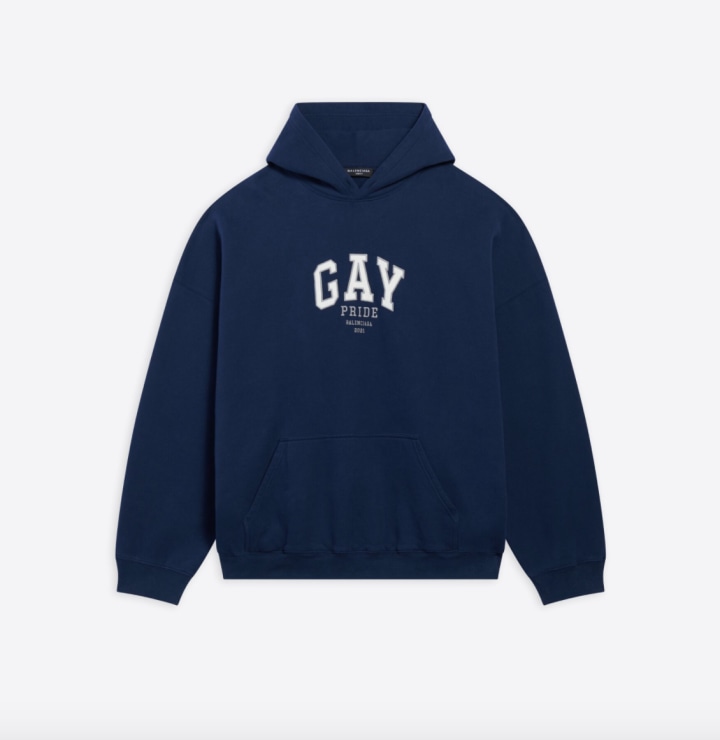
Balenciaga Pride Boxy Hoodie$895.00BALENCIAGA
Related
Summer reading: ‘Harry Potter’ alternatives
Vans’ Pride SK8 Hi Tops
Vans’ Pride 2021 Collection goes to the dark side — with slick black Sk8-Hi boots with a thin rainbow stripe. This classic high-top also includes padded collars, reinforced toe caps and Vans’ signature rubber waffle outsoles. Looking to make a brighter statement? The collection also includes a kaleidoscope of slip-ons, sneakers, tees, tanks, laces and more.
This year, Vans is making a $200,000 donation to organizations that support the LGBTQ community around the globe, like GLSEN, Where Love is Illegal, Casa 1 and Tokyo Rainbow Pride.

Vans Pride SK8 Hi Tops$80.00VANS
NYX Professional Makeup’s Born to Glow Icy Highlighter Duo
This Pride, NYX is partnering with HBO’s “Legendary” to celebrate the ballroom scene with a #NYXCosmeticsBall Instagram challenge that sees contestants competing for a $5,000 prize. The category, of course, is FACE.
To get you started on your ball look, NYX is launching a limited-edition collection featuring a Metal Play Palette, Shape Loud Liners, Epic Wear Liner Sticks and the Born to Glow Highlighter that will bring a colorful ultra-metallic sheen to your mug. This year, NYX is also donating over $100,000 to global Pride efforts, including a donation to the LA LGBT Center.

NYX Professional Makeup’s Born to Glow Icy Highlighter Duo$12.00NYX PROFESSIONAL MAKEUP
EFFEN Vodka’s 2021 Pride 365 Bottle
EFFEN commissioned Chicago-based queer artist and street muralist Sam Kirk to design the label for its Pride bottle, which celebrates the intersectionality and vibrancy of the Black and LGBTQ communities. Consumers can also personalize their EFFEN Pride 365 bottles with vinyl decals from queer nonbinary Afrolatinx artist Acacia Rodriguez and trans artist Kyle Lasky.
This year, EFFEN is partnering with Allies in Arts, which works to promote underrepresented women, BIPOC and LGBTQ artists. For each 750 ml bottle sold, EFFEN will donate $1 to Allies in Arts.
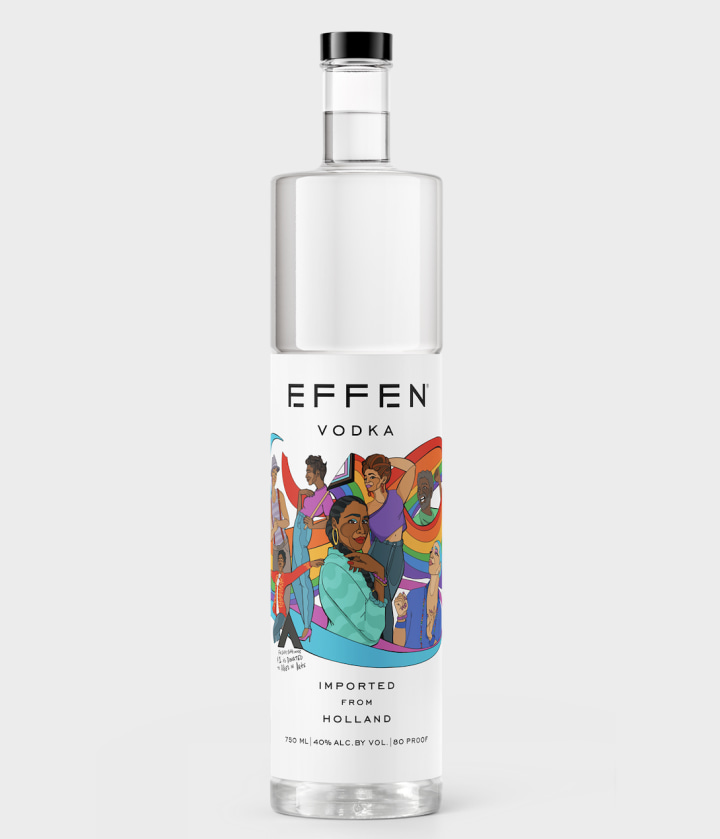
EFFEN Vodka 2021 Pride 365 Bottle$29.99LIQUOR ON BROADWAY
Related
Miss USA’s 1st bisexual contestant on why winning is ‘about the people you’re representing’
Happy Socks’ Pride Socks
Happy Socks is switching it up for Pride this year: Instead of launching a large-scale campaign, the company donated the campaign’s entire $20,000 budget to InterPride, an organization promoting lesbian, gay, bisexual, transgender, queer, and intersex communities around the world.
The company is also launching a new Pride collection, featuring four rainbow-centric styles available in adult and kids’ sizes, as single pairs or in gift boxes. The collection includes socks inspired by the “Progress” Pride Flag designed by Daniel Quasar. They feature a broader spectrum of the LGBTQ representation, including pink, light blue and white stripes to represent transgender and non-binary individuals, and black and brown to symbolize marginalized communities of color, as well as those affected by AIDS. Ten percent of the profits from all Pride collection items will be donated to InterPride.
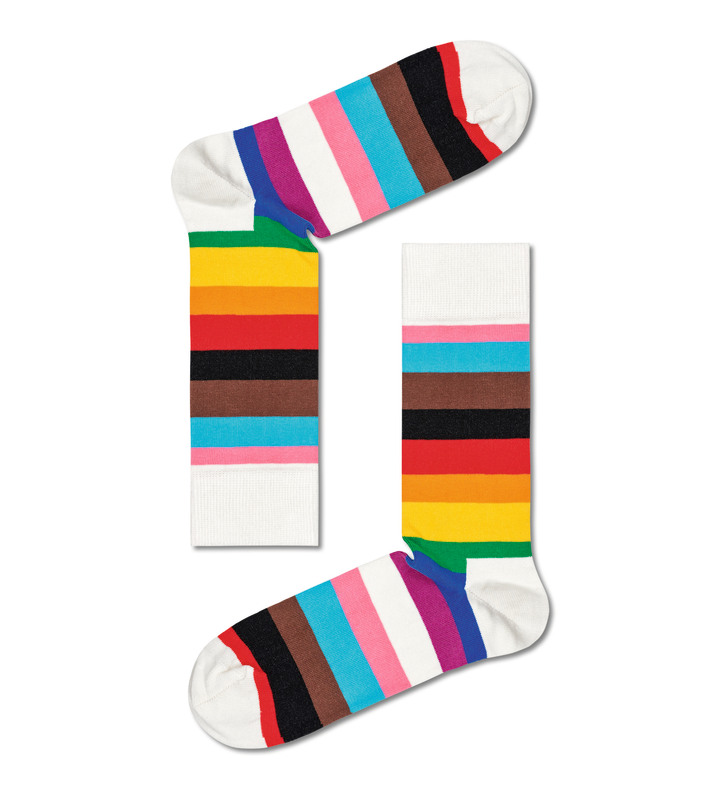
Happy Socks Pride Socks$14.00HAPPY SOCKS
Levi’s Pride Relaxed Graphic Tank Top
Ranging from $18 to $148, Levi’s 2021 Pride Collection “All Pronouns. All Love” puts emphasis on respecting people’s pronouns, with the phrase “they/them, she/her, he/him, we” emblazoned on graphic tees, jackets and a super-sleek tank top. The gender-neutral collection also includes overalls, jumpsuits, denim jackets and accessories like rainbow ombre suspenders and boxer briefs.
Levi’s is donating 100 percent of net proceeds from the collection to OutRight Action International, which works to advance human LGBTQ rights around the world.
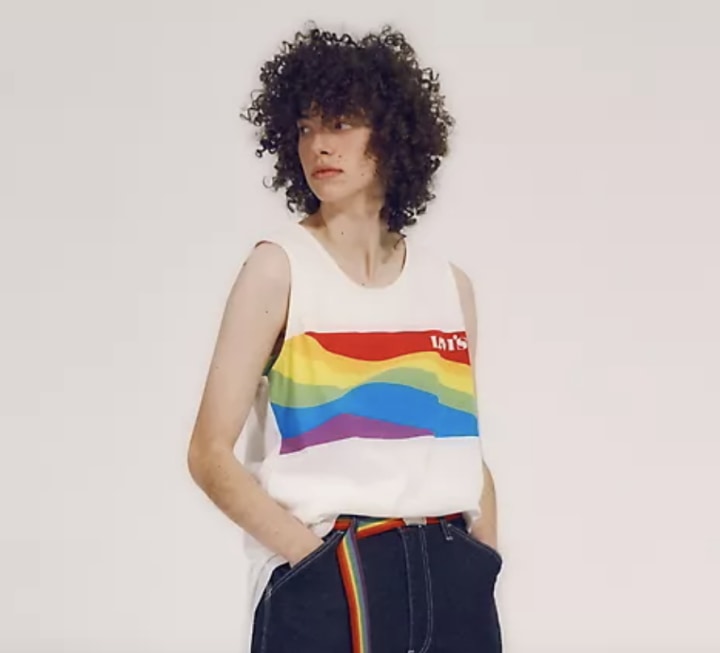
Levi’s Pride Relaxed Graphic Tank Top$20.00LEVI’S$20.00ZAPPOS$20.00TARGET
TGI Fridays’ Carlo’s Bakery Rainbow Cake
The popular restaurant chain is celebrating Pride with a decadent dessert: six layers of rainbow-colored vanilla cake piled high with vanilla icing and sprinkles, available at participating Friday’s locations or for delivery.
“For more than 50 years, TGI Fridays has celebrated people of all stripes, whether team members or guests,” said Sara Bittorf, chief experience officer at TGI Fridays. “We are committed to creating an environment where people can feel free to come together, socialize, and be themselves.” A portion of every slice sold, up to $25,000, will support GLSEN.

TGI Fridays Carlo’s Bakery Rainbow Cake$10.19TGI FRIDAYS
Related
Best LGBTQ books to read this summer
Follow NBC Out on Twitter, Facebook & InstagramDan Avery, Shop TODAY

